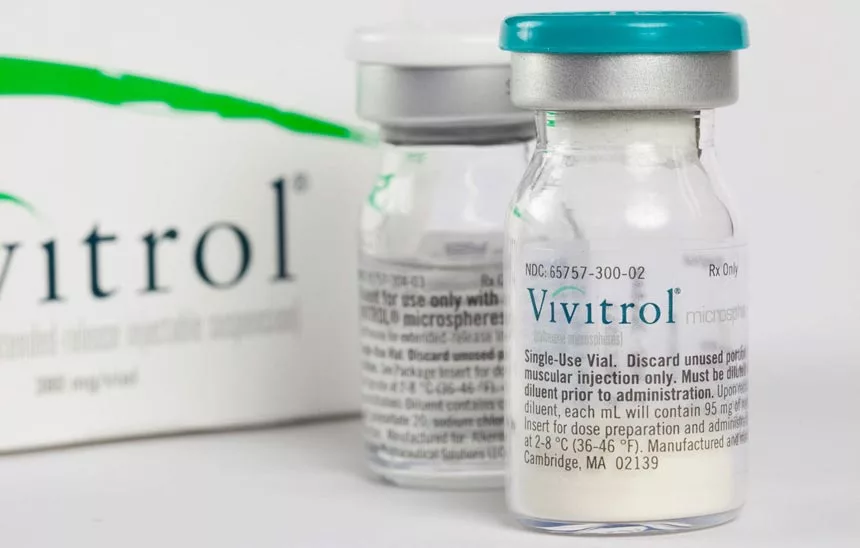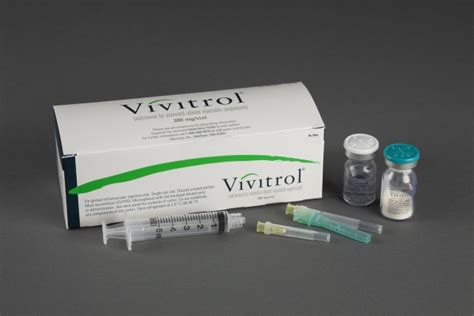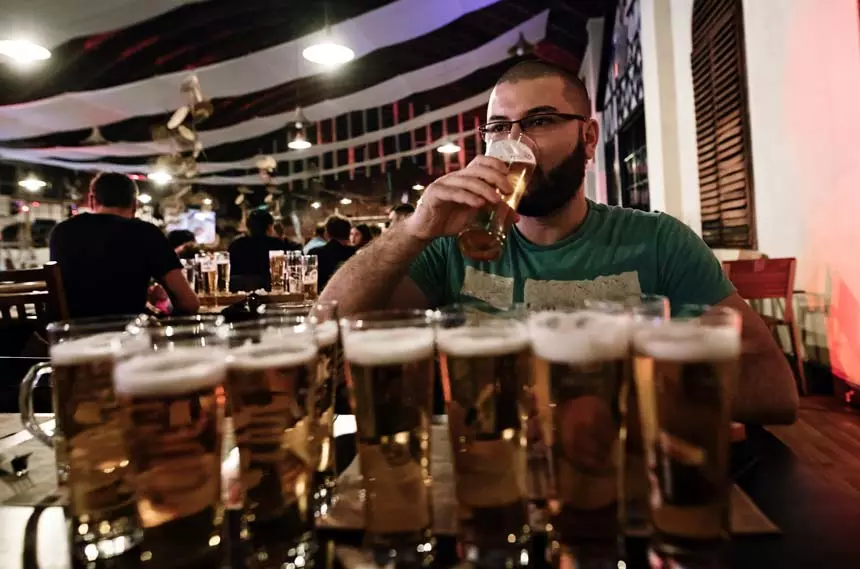Vivitrol Is Not a Replacement For Rehab
Table of Contents
- Vivitrol Is Not a Replacement For Rehab
- America Has an Addiction Problem
- Prescription Drug vs. Drug Addiction
- What Is Vivitrol?
- Treating Alcohol Dependence
- How Does Vivitrol Work?
- Vivitrol Isn’t a Complete Treatment Program
- Treating Symptoms With Additional Symptoms
- What are the Side Effects of Vivitrol?
- Vivitrol Precautions
- How Long Does a Vivitrol Injection Last?
- What Are the Effects of Taking Opioids While on Vivitrol?
- Effects of Drinking Alcohol While on Vivitrol
- Vivitrol Prescriptions
- Vivitrol: It’s Not a Standalone Addiction Cure
- Lasting Recovery for Addiction: Found Here
A recent VICE article regarding Vivitroland its prescribed use among those struggling with addiction has brought the new opioid treatment drug to the forefront. The latest statistics show that roughly 1 in 12 Americans suffer from addiction; that’s more Americans suffering from addiction than cancer. Alarmingly, an American dies of an opioid overdose every 19 minutes – whether from a form of prescription drug or deadly fentanyl products.
It’s therefore reasonable to assume that if you don’t struggle with addiction, you’ve known someone who does. These frightening statistics raise a legitimate question: What can we do to end this epidemic? Vivitrol shots are an important but sometimes controversial part of the toolkit for ending the flood of opiate deaths and guiding people into treatment.
Keep reading to find out more about opioid addiction, Vivitrol, and how to prevent opioid withdrawals and find lasting recovery.
America Has an Addiction Problem
From alcohol to opioid abuse, addiction claims thousands of Americans’ lives annually, affecting millions more. Substance use disorders (SUD) are mental illnesses that have long-term effects.
Like many other chronic diseases, there’s no cure for addiction. There are several options for treatment and management. Like cancer, however, every patient requires a customized, complex therapeutic intervention.
A casual search of the internet for opioid or addiction treatment returns lists of “treatment centers,” which quickly alienates some people or “magic pills,” prescriptions for addiction.
It’s safe to say America is a “pill-happy” country; we opt for quick solutions for our diseases. It’s understandable that if there were a pill or an injection readily available to ease the pain, most people would prefer that treatment.
Unfortunately, addiction is not easily treatable. This fact is why it is essential to attack it with robust treatment, but also use caution when prescribing medicines for those who suffer from this terrible disease.
After completing detox, you should put all your energy into making sure you don’t go back to using drugs. You want to avoid experiencing severe withdrawal symptoms at all costs. Those struggling with addiction are fortunate to have access to a growing list of options such as naltrexone, suboxone and methadone.
Prescription Drug vs. Drug Addiction
Physicians commonly prescribe three medications to treat opioid abuse: methadone, buprenorphine, and naltrexone. Buprenorphine is best known by the trade name Suboxone. Next, naltrexone is a pill or injectable prescription drug sold under the brand Vivitrol.
All three prescriptions have transitioned drug users from active drug use to recovery. Indeed, several of the accredited treatment programs we work withincorporate medication into their program, alongside therapy and counseling.
However, each of these medicines comes with its own list of side effects and dangers. These medications are not a cure. Not even one of these can get someone out of active addiction on its own. Each one must be utilized in conjunction with carefully monitored wellness checks, counseling, and 12-step groups.
Most people, however, are looking desperately for easy and quick solutions. More and more of us turn to these prescriptions. In some cases, courts are even forcing patients to enter into treatment based on medications. Vivitrol is one prescription drug that’s being ordered, and the outcomes aren’t always positive.
To give them credit,Vivitrol isn’t trying to hide or play downthe side effects of treatment. While naltrexone is available in a pill form, Vivitrol is an injectable form of the medicine.
The monthly injection blocks opioid receptors in the user’s brain. When taking it, users don’t feel the euphoria or high that they would usually feel from using.
On the downside, it can block the patient from experiencing any enjoyment at all, including the simple pleasures that all people—especially those in recovery—require to make life better. This includes things like enjoyment from companionship, music, favorite foods, or other ways to cope with the stress of life.
What Is Vivitrol?

Vivitrol is an injectable version of naltrexone, which helps assist patients in maintaining abstinence while recovering from:
- Opioid dependence: Vivitrol helps patients not hospitalized because of alcoholism or alcohol use disorder.
- Alcohol dependence: This medication helps prevent opioid dependence after detoxification.
Opioids are potent drugs frequently used to manage pain. Opioid detoxification entails removing the opioid drugs from your system. Vivitrol enables you to avoid opioid dependence if you have previously taken opioids.
Other naltrexone formulations are available as oral tablets, but Vivitrol is delivered as an intramuscular injection once a month.
Before receiving a Vivitrol shot, patients in treatment for opioid addiction must completely detox from these substances and then maintain abstinence for 7-10 days; otherwise, this prescription medication might cause withdrawal symptoms.
It’s best to remember that Vivitrol isn’t a cure for opioid and drug dependency, and this drug must be used together with education and counseling.
Treating Alcohol Dependence
Alcohol use disorder can progress into alcohol dependence after continued, heavy alcohol consumption. According to the National Institute on Alcohol Abuse and Alcoholism, people with alcohol use disorder exhibit two or more of the symptoms below:
- Drinking more alcohol than desired.
- Withdrawal symptoms such as nausea or an elevated heart rate as alcohol’s effects wear off.
- Drinking for longer or more than intended.
- Wishing to drink alcohol less or stop drinking but being unable to.
- Carrying on with alcohol consumption despite its adverse effects, such as depression and other health issues.
If you suffer from alcoholism, Vivitrol can help you cut back on your cravings. Data from a clinical trial reports that patients receiving monthly Vivitrol injections have 25% fewer heavy drinking days than those given no treatment. Heavy drinking refers to five or more alcoholic drinks for males and four or more alcoholic beverages for females.
People who abstained from alcohol for one week before beginning treatment with Vivitrol fare better than those who do not.
Opioid Dependence
Approximately 2 million Americans suffer from opioid abuse, including prescription opioids and illegal substances. Here are some commonly abused opioids:
Opioids and prescription medicines are highly addictive. Once you start using them, it’s not easy to stop. Because of your body’s adaptation to the medications, you’ll experience a wide range of unpleasant opioid withdrawal symptoms if you decide to stop using them. These withdrawal symptoms are a significant contributor to the difficulty of quitting.
The Diagnostic and Statistical Manual of Mental Disorders (DSM)-5 states that opioid use disorders must meet more than one of the following criteria:
- Increasing the dosage or duration of opioid use despite trying to cut back on opioid use
- Waiting for long periods to satisfy a need for opioids
- Being unable to function in social, domestic, or academic settings because of drug usage
- Losing interest in once-favorite activities
- Experiencing persistent difficulties in social and personal relationships
- Opioid usage when doing so poses a physical risk
- Using opioid medication despite awareness of a preexisting medical or mental health condition that is being exacerbated by their use
- Development of tolerance to opioids
- Developing withdrawal symptoms
Repetitive opioid use can lead to dependence. Your brain can accustom to the presence of the medications in your system. Opioid use disorder makes normal brain function impossible in the absence of opioids. Opioid withdrawal symptoms can include feeling sick and nauseous.
It is common for persons going through opiate withdrawal to start using the drugs again, and they may eventually need a higher dose of the opioid to achieve the same high. Tolerance refers to this kind of attitude. Reliance on opioids can cause addiction and increase the risk of overdosing.
Vivitrol helps prevent relapses. To get the most out of your Vivitrol treatment, you should first complete an opioid detoxification program. This necessitates a withdrawal from all opioids. When starting treatment with Vivitrol, you should wait 7-10 days after your last use of opioids.
How Does Vivitrol Work?

Repeated use of alcohol and other drugs develops tolerance. Because of this tolerance, addicts need more of the substance to achieve the same effects as before. Although stopping drug use here would seem like a no-brainer, many people who have built up a tolerance owing to the long-term effects of drugs and alcohol can no longer quit cold turkey.
The brain gets tricked into wanting more and ignoring the consequences of substances that generate pleasure and pain-alleviating effects. When substance abuse turns into addiction, the user is pitted against themselves in an unjust war. Vivitrol levels the playing field.
To alleviate opioid cravings while maintaining mental clarity, Vivitrol binds to opioid receptors without activating them. The prescription lessens the desire to use opioids and prevents the user from experiencing the high that these drugs often produce. Naltrexone prevents the substances from binding to the opioid receptors in the body.
Cravings and relapse are two of the most significant issues people have when trying to overcome opioid addiction, which helps with both. Given that users of Vivitrol don’t get high, they are less likely to give in to their desires and relapse.
A single monthly naltrexone injection allows patients to devote their time to treatment only, laying the groundwork for long-term abstinence.
Taking Vivitrol or other forms of naltrexone prevents the brain from experiencing the euphoric effects of alcohol and narcotics. Though it may take some time, this modifies the brain’s wiring such that it no longer anticipates feeling good after consuming drugs or alcohol.
You should avoid other drugs while getting Vivitrol shots, but knowing that you won’t get high from them can help you stay clean. Vivitrol is not intended for usage during active substance abuse but instead after detox is complete.
Vivitrol Isn’t a Complete Treatment Program
Vivitrol should not be used as a sole treatment. Studies have shown that Vivitrol is ineffective unless used with another treatment plan. For the length of Vivitrol therapy, the patient should participate in inpatient treatment, a stay in a sober living home, counseling, or therapy.
However, Vivitrol can enhance the efficacy of these psychotherapy interventions. Taking Vivitrol, with its time-release effect, allows you to put all of your energy into developing the habits and practices that will help you overcome your addiction and stay clean.
As a result, you will be able to concentrate on overcoming your triggers once you have successfully detoxed from all substances.
Treating Symptoms With Additional Symptoms
This might not sound so bad by itself, but addicts must learn to enjoy living in positive ways that don’t include prescription drugs, alcohol, or substances. When an addict feels as if they have nothing positive ahead, or that nothing any longer pleases them, the chance of relapse increases significantly.
This fact means that Vivitrol users who feel depressed after the injection are almost certain to relapse. Because nearly 60% of those with struggle with addiction will relapse, either with or without using prescribed medications. This is a critical statistic when considering prescribing a drug like Vivitrol.
In fact, Vivitrol itself warns thatsevere depression and increased risk of suicidecan result from the injections. They clearly state that there were two suicides during the initial trials of the prescription drug.
Aside from blocking the feeling of high for a user, it also claims to cut cravings during recovery. While it can be helpful in the beginning, this must be weighed carefully against some of the more alarming side effects. Vivitrol increases the chance of relapse with overdose.
It’s a dangerous game as active addicts will try to break the barrier that blocks the “high” feeling by using enormous amounts of opiates and overdose. Vivitrol patients rapidly lose their tolerance to their drugs of choice; then, if they miss their shot and attempt to use, they overdose due to the decreased tolerance. This leads to fatalities.
Those who choose Vivitrol must understand that they must be 100% committed to recovering so that they don’t die of an overdose.
Overdose is not the only side effect. The actual injections can be brutal. There are documented cases of tissue death around the injection site—another listed side effect. Compared to the other prescriptions for addiction treatment, Vivitrol seems to be the riskiest option.
Isn’t it odd, then, that treatment courts are mandating that patients accept this medication as part of their plea deals?
What are the Side Effects of Vivitrol?
The initial dose of this medication may cause nausea. You could also experience headaches, dizziness, lack of appetite, and vomiting. Inform your healthcare professional immediately if any of these side effects persist or worsen after two weeks of treatment. In extremely rare cases, irreversible damage can be caused by an adverse reaction at the injection site.
Keep in mind that your healthcare provider ordered this drug after carefully weighing the benefits and risks of using it. The medicine is well tolerated by most people, with few experiencing significant adverse effects.
Seek immediate medical attention if you experience symptoms of an allergic reaction after taking Vivitrol. Signs of an allergy include:
- Hives
- Chest discomfort
- Wheezing or shortness of breath
- Dizziness
- Swelling of the face
Opioid-containing medicines taken when patients get a Vivitrol shot may lead to sudden opioid withdrawal symptoms. Stomach pain, fever, nausea, watery eyes, body aches, trembling, muscle pain, and sleeping difficulties are typical withdrawal symptoms.
Some of the severe side effects of Vivitrol are:
- Shallow and weak breathing
- Breathing difficulties
- Severe injection site reactions like pain or swelling
- Liver problems
- Depression symptoms
Call a doctor immediately if you experience any of the symptoms above.
In some cases, naltrexone might cause depression. Before beginning treatment, inform your healthcare professional if you have a history of depression, suicidal ideation, or other mental health conditions.
Inform your family, friends, and those close to you that you are taking naltrexone. If you get depressed or exhibit symptoms of depression, contact a doctor immediately.
Vivitrol Precautions
Inform your doctor or pharmacist if you are allergic to naltrexone or if you have any other allergies before using this medication. Allergies and different reactions to the product’s inactive components are possible. Consult your doctor or pharmacist for clarification.
Before getting a Vivitrol injection, tell your healthcare professional or pharmacist your medical history, including:
- Current or recent use of opioid medication like morphine or methadone
- Bleeding problems
- Kidney or liver problems
In case of an unexpected medical situation, having a medical ID bracelet or necklace that clearly states that you are taking this medication is imperative.
This medication could cause lightheadedness or drowsiness, especially for patients that drink alcohol or use cannabis. Please consult your physician if you use marijuana.
Do not operate a motor vehicle or heavy machinery or engage in any activity that requires total concentration until you have recovered sufficiently to do so safely. It would be best if you abstained from drinking alcohol.
Increased sensitivity to opioids at lower dosages and the likelihood of severe, potentially fatal adverse effects from opioids may occur after discontinuing naltrexone medication or skipping a dose. Ensure your surgeon and dentist know you’re taking this medicine before undergoing invasive procedures.
This drug inhibits the effects of heroin and other opiates. However, this barrier can be broken by consuming enough heroin or opiates. It’s risky to try passing this barrier; you might quickly end up in the hospital or dead if you do. Take this drug only if you have carefully considered and decided that the benefits outweigh the risks.
Only use this drug should during pregnancy when needed. Ask your doctor about the potential pros and cons before treatment. Vivitrol passes into breast milk, so strictly adhere to your doctor’s orders.
How Long Does a Vivitrol Injection Last?
Vivitrol injections usually last approximately a month. But your healthcare professional may put you on a different injection regimen. For the best benefit, you may require a different dose of Vivitrol than others.
The effects of Vivitrol injections are most potent in the first few weeks after injection. Vivitrol’s strength decreases over time, which means it will not function as well the week before your next injection as it did the first week.
If you are taking Vivitrol as part of your treatment plan, you must continue to receive monthly injections. Missing a monthly injection reduces the efficacy of Vivitrol. You may have cravings and urges again, particularly during early addiction treatment.
Always consult with your treatment team before discontinuing Vivitrol. You should ensure that you have alternate coping skills for cravings in place before discontinuing Vivitrol treatment.
What Are the Effects of Taking Opioids While on Vivitrol?
Patients who received Vivitrol injections may respond to lower doses of opioids than previously used. Still, the FDA warns that if patients use opioids at the same amount they previously used after taking Vivitrol, they risk overdosing.
Whether legal like pain medication or illegal like heroin, taking opiates when on Vivitrol is risky because:
- Vivitrol blocks the effects of opioids. While taking Vivitrol, the “high” from opiates will not be as intense as it would be without it. To offset the effects of Vivitrol, patients may increase their opioid usage.
- Vivitrol blocks the opioid receptors in the brain. So addicts might take a large dose of opiates to overcome the blockade.
- This drug’s effects fade gradually before the next injection. Taking opiates a few days after a monthly Vivitrol injection will have a considerably more significant impact than taking them the week before the shot.
You won’t get the same high from opiates while using Vivitrol, and you can end up consuming varying amounts than usual. Your tolerance may decrease following a detox, putting you in greater danger of overdosing if you relapse.
Effects of Drinking Alcohol While on Vivitrol

Naltrexone mitigates alcohol’s intoxicating effects, but the drug has little effect on the impairment alcohol might cause, such as slow reflexes or poor decision-making. You might not think you’re intoxicated, but if you’re doing things like driving, you shouldn’t be. The lack of motor coordination, slower reaction times, and slowed thought processes might persist.
Never take naltrexone if you plan on driving or engaging in any other hazardous activity while under the influence of alcohol.
Naltrexone often has no adverse side effects. As you won’t be experiencing the intoxicating high typically associated with consuming alcohol, your enjoyment of drinking may decrease. But it can help you give up alcohol by disabling the pleasurable response your brain has come to associate with drinking alcohol.
When combined with alcohol, naltrexone won’t make you sick as disulfiram does. It is generally safe and has few adverse effects.
Vivitrol Prescriptions
Doctors must undergo special training before prescribing Vivitrol and other FDA-approved medications. But few go through the training because of a persistent misconception that Vivitrol and other naltrexone drugs are ineffective in treating substance abuse.
Alcohol use disorder and opioid addiction do not have a panacea-like pharmaceutical treatment option. Like other drugs used to treat addiction, a Vivitrol injection may be beneficial, but it is most effective in conjunction with psychotherapy. Addiction therapy helps by providing social support, retraining harmful habits, and insight into the roots of the problem.
The usual dosage for adults suffering from alcohol or opiate dependence is a 380 mg intramuscular injection every four weeks.
Overdosing Risk
Overdosing on Vivitrol is rarely possible, but it is possible to overdose on other narcotics while using Vivitrol. The naltrexone in a Vivitrol injection prevents the user from experiencing the euphoric effects of opioids.
To offset the effects of naltrexone on the brain’s reward system, you may increase your opioid intake while taking Vivitrol leading to opioid overdose. Only medical professionals cab to administer Vivitrol injections. Injections are not provided for self-administering and must be scheduled with a healthcare provider.
Keep your doctor in the loop about changes in your opioid usage or cravings while taking Vivitrol. When you are truthful with your healthcare provider about the side effects of Vivitrol, they will be able to make changes or recommendations for effective addiction therapy.
Vivitrol: It’s Not a Standalone Addiction Cure
Anyone considering treatment has treatment options to consider and crucial choices to make. There is no vaccine or cure for addiction, and a choice of medicine-assisted treatment should be made with grave consideration. Naturally, medication is only one part of a comprehensive addiction treatment program.
The best-accredited treatment programs place a stronger emphasis on dual diagnosis. The prevalent philosophy in addiction treatment is that medication is a course of action that must be combined with additional therapies. One thing that’s crystal clear is that prescription medications alone do not cure addiction.
Lasting Recovery for Addiction: Found Here
Every person who is ready for treatment should weigh their options while considering that it genuinely can be a life-or-death choice. Addicts who have gotten clean and sober—and stayed there—will testify that they are happy they chose to regain control of their life and credit a strong support network as the number one factor in their ongoing recovery.
So, if you or someone you care deeply about is considering treatment options, get the facts and make a fully informed decision. Remember that those fighting with addictions must be ready and able to fully and actively participate in their treatment program for it to be effective.
Call Find Addiction Rehabs now if you or your loved one is ready and willing to take the next step toward long-lasting sobriety!
Anna M. joined Find Addiction Rehabs with extensive experience in the field of addiction treatment. As a former Nurse Practitioner in Miami, she found her passion for addiction treatment when a family member was lost to his disease. With each article and resource, she hopes to save other families from experiencing the anguish of a loved one’s passing due to drinking or drugs.


